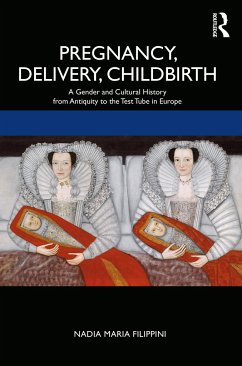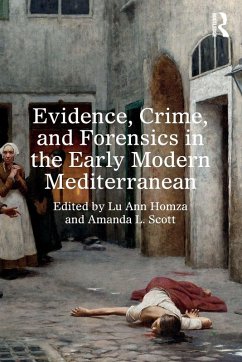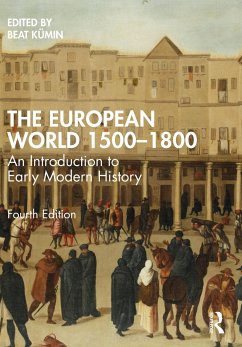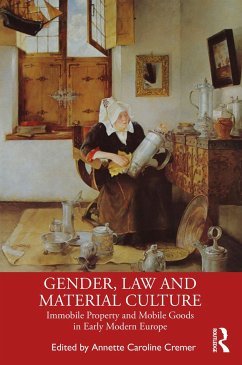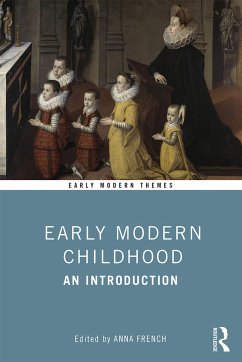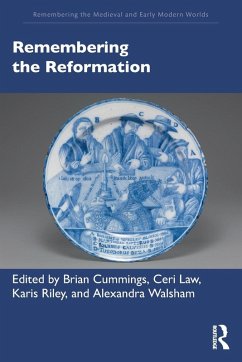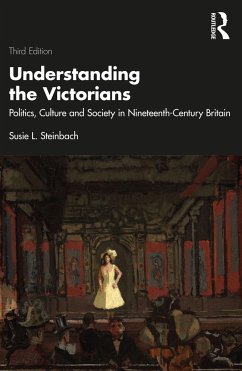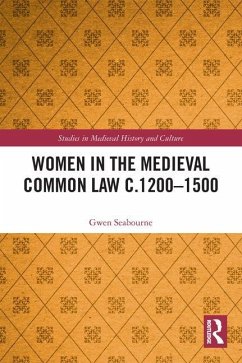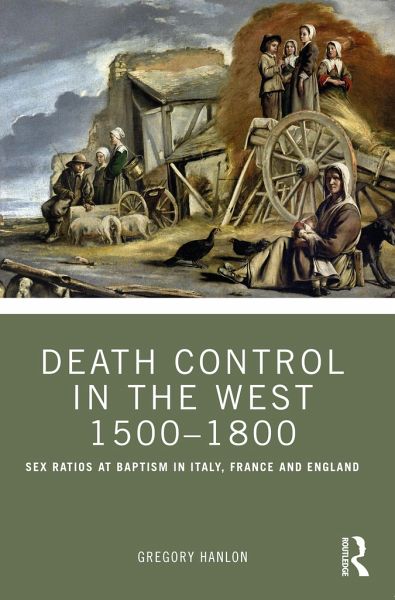
Death Control in the West 1500-1800
Sex Ratios at Baptism in Italy, France and England
Versandkostenfrei!
Versandfertig in 6-10 Tagen
42,99 €
inkl. MwSt.
Weitere Ausgaben:

PAYBACK Punkte
21 °P sammeln!
Employing a rigorous methodological approach and analysing a vast body of sources from towns and regions in Italy, France and England over 300 years, this book hints at the extent of "routine" infanticide of newborns by married parents in early modern Europe, a practice ignored by contemporary tribunals.Death Control in the West 1500-1800 examines baptismal registers and ecclesiastical censuses across a score of communities in Catholic and Protestant Europe. Married women had little reason to hide their condition from priests, midwives, neighbours and friends; however, the practice of post-par...
Employing a rigorous methodological approach and analysing a vast body of sources from towns and regions in Italy, France and England over 300 years, this book hints at the extent of "routine" infanticide of newborns by married parents in early modern Europe, a practice ignored by contemporary tribunals.
Death Control in the West 1500-1800 examines baptismal registers and ecclesiastical censuses across a score of communities in Catholic and Protestant Europe. Married women had little reason to hide their condition from priests, midwives, neighbours and friends; however, the practice of post-partum abortion was common everywhere, especially during times of hardship. By no means was it confined to the lower classes or to girls alone. Proposing a series of reflections on population control, this volume explores how families adopted a system of selective infanticide to manage resources and to safeguard social status, just like populations elsewhere around the globe.
This study is an excellent tool for students and researchers interested in the demographic mechanisms of the age and social and familial relationships in early modern Europe.
Death Control in the West 1500-1800 examines baptismal registers and ecclesiastical censuses across a score of communities in Catholic and Protestant Europe. Married women had little reason to hide their condition from priests, midwives, neighbours and friends; however, the practice of post-partum abortion was common everywhere, especially during times of hardship. By no means was it confined to the lower classes or to girls alone. Proposing a series of reflections on population control, this volume explores how families adopted a system of selective infanticide to manage resources and to safeguard social status, just like populations elsewhere around the globe.
This study is an excellent tool for students and researchers interested in the demographic mechanisms of the age and social and familial relationships in early modern Europe.





